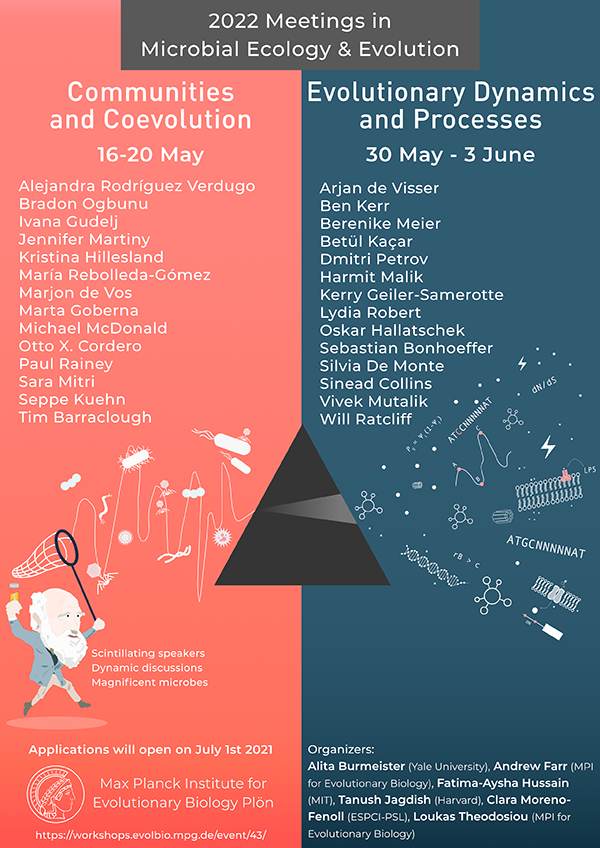Speaker
Description
Among group-forming microbes, the predatory myxobacteria represent important model organisms in developmental biology and social evolution. Many important aspects of their multicellular life cycles have been studied in great molecular detail. We recently showed that individuals of the myxobacterium Myxococcus xanthus stay together as kin groups over extended periods of time in soil, thereby accumulating substantial genetic diversity. We demonstrated that the latter is strongly influenced by selective forces acting on genes implicated in social behavior, but also in fending of invasive genetic elements. In this contribution, we will focus on “ecological information” stored in the whole genomes M. xanthus individuals meticulously sampled from dozens of kin communities in nature. In particular, we will highlight that our reverse ecology approach enables elucidating recent and past local encounters with local parasites and prey, and can reveal locally confined infection networks.

